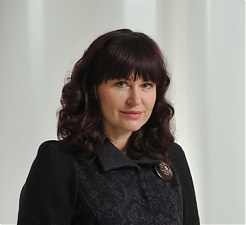Banks, Direct Speech, Economics, GDP, Latvia
International Internet Magazine. Baltic States news & analytics
Wednesday, 04.02.2026, 01:34
The third quarter recorded GDP growth, albeit amid rising concerns
Agnese Rutkovska economist, Latvijas Banka, 04.12.2020. Print version
Print version
 Print version
Print versionFollowing the COVID-19 outbreak in spring, the third quarter was more favourable for the economy. We already knew this from the GDP flash estimates published a month ago (although the estimates suggested less pronounced growth) and from other data.
 |
|---|
This is also confirmed by the detailed GDP data which point to a 7.1% increase compared to the second quarter. Despite restrictions, which were eased but not lifted during the summer months, all GDP expenditure components – in particular, private consumption which had reported the steepest fall in the second quarter – recorded quarterly growth.
During the 2008 crisis, the most pronounced drop was recorded in investment, whereas the COVID-19 crisis had the most notable impact on private consumption which saw a surprisingly steep fall in the second quarter. Therefore, it was projected, with relative certainty, that private consumption would recover more rapidly in the third quarter. Restrictions on sporting, cultural and other events, restrictions on the opening hours of shopping centres, cancelled travels as well as other obstacles to planned and unplanned spending led to a decline in private consumption and a build-up of savings. Part of the savings were already spent in the third quarter. With restrictions still in place, however, the pent-up demand is expected to be met only once the situation improves.
At the same time, concerns about income stratification surfaced as less wealthy households saw their financial situation deteriorate even further due to lost income. This was indicated by some survey data. Unfortunately, the situation cannot be fully reflected by the official statistics because of envelope wages and other legal but non-declared income. For instance, tips account for part of the income of the service personnel in the tourism sector, catering in particular. With the tourism sector shrinking, people employed in the sector have seen their income decline significantly. Meanwhile, shadow economy workers are less protected against unexpected layoffs and are not eligible to social protection in the form of unemployment or furlough benefits. Thus, the situation can lead to higher income inequality.
In the third quarter, investment growth seemed, at first, very optimistic owing to many projects, road construction projects in particular, submitted for EU funding. In reality, however, the outcome was less positive as the developers were unable to provide adequate levels of capacity, did not manage to receive project documentation approvals or experienced delays due to disputed competition results. This is how the situation is depicted by the representatives of the construction sector. Against this background, investment growth moderated quarter-on-quarter.
In the third quarter, foreign trade also saw stronger activity compared to the second quarter when the economy was more severely affected by the crisis. The increase in foreign trade activity was driven by the revival of external and domestic demand, less significant disruptions in production and transportation as well as an increase in exports of individual goods. In September, exports of goods reached a new high in export value on account of record-high grain harvest volumes. Meanwhile, services exports remained overall weak because the cross-border movement was limited due to the cautiousness of travellers and quarantine restrictions.
The above developments were reflected by the respective sectors. In the third quarter, easing of the COVID-19 restrictions lead to a revival in both the goods and services sectors. As a result, the pent-up consumption needs were met, thus supporting, for instance, the manufacturing and trade activity. The steepest quarter-on-quarter growth was observed in the areas most affected by the cross-border movement and gathering restrictions which had resulted in the so called suspended consumption in the second quarter. Against this background, the value added of the accommodation and catering services as well as the arts, entertainment and recreation services reported rapid growth in the third quarter (93% and 50% quarter-on-quarter respectively; seasonally adjusted data). However, since this "leap" was from a very low level, the value added of the above sectors remained low compared to the respective seasonal performance a year ago. In annual terms, the most significant value added growth was observed in agriculture. The sector's performance was enhanced by another temporary factor – favourable weather conditions that brought a good harvest.
At the end of the third quarter, the focus increasingly moved to the new season of the virus activity and concerns about the future grew. With the number of cases rising and restrictions becoming tighter, the concerns are deepening. It is clear that GDP will shrink once again. The winter will be severe, even if it brings no frost. In December, Latvijas Banka will publish its GDP forecast which will take into account the economic impact of the second wave of the pandemic. Thus, the GDP estimates for the fourth quarter of 2020 and for 2021 are likely to be lower.
Other articles:
- 28.01.2022 BONO aims at a billion!
- 25.01.2021 Как банкиры 90-х делили «золотую милю» в Юрмале
- 30.12.2020 Накануне 25-летия Балтийский курс/The Baltic Course уходит с рынка деловых СМИ
- 30.12.2020 On the verge of its 25th anniversary, The Baltic Course leaves business media market
- 30.12.2020 Business Education Plus предлагает анонсы бизнес-обучений в январе-феврале 2021 года
- 30.12.2020 Hotels showing strong interest in providing self-isolation service
- 29.12.2020 В Латвии вводят комендантский час, ЧС продлена до 7 февраля
- 29.12.2020 В Rietumu и в этот раз создали особые праздничные открытки и календари 2021
- 29.12.2020 Latvia to impose curfew, state of emergency to be extended until February 7
- 29.12.2020 18-19 января Наталия Сафонова проводит семинар "Управленческий учет во власти собственника"








 «The Baltic Course» Is Sold and Stays in Business!
«The Baltic Course» Is Sold and Stays in Business!

